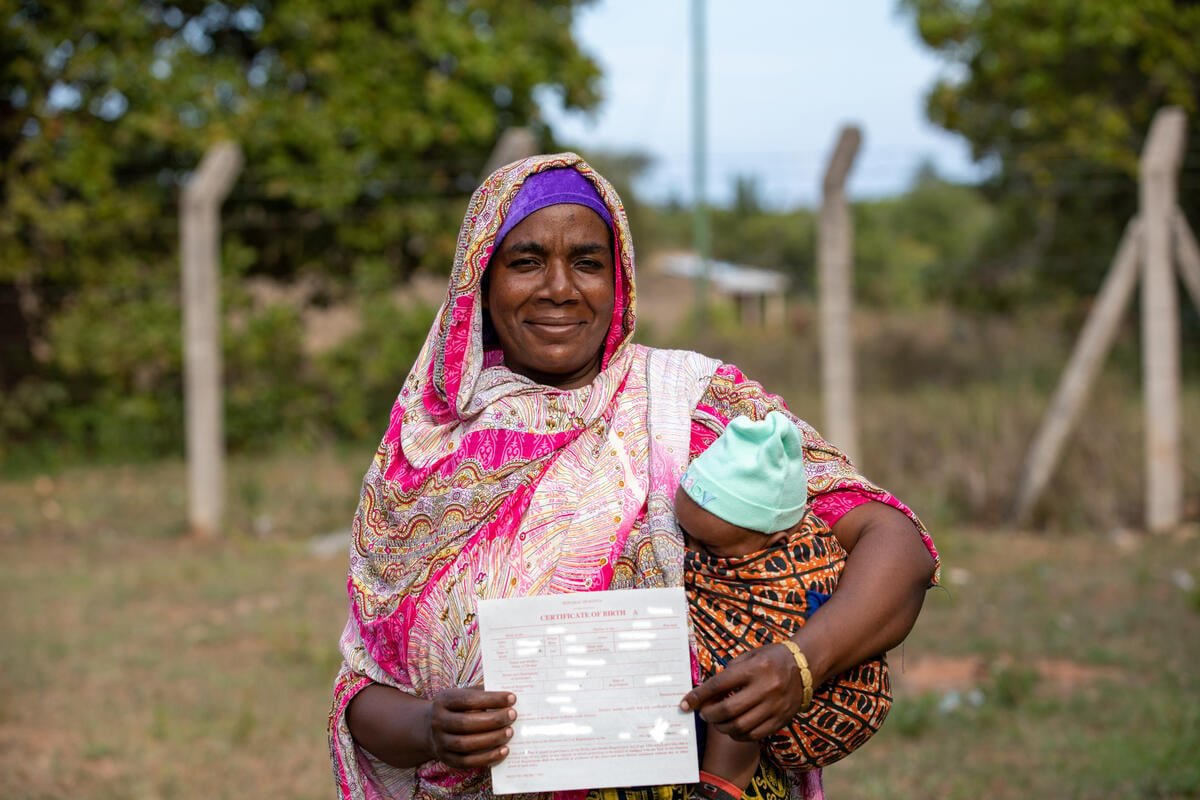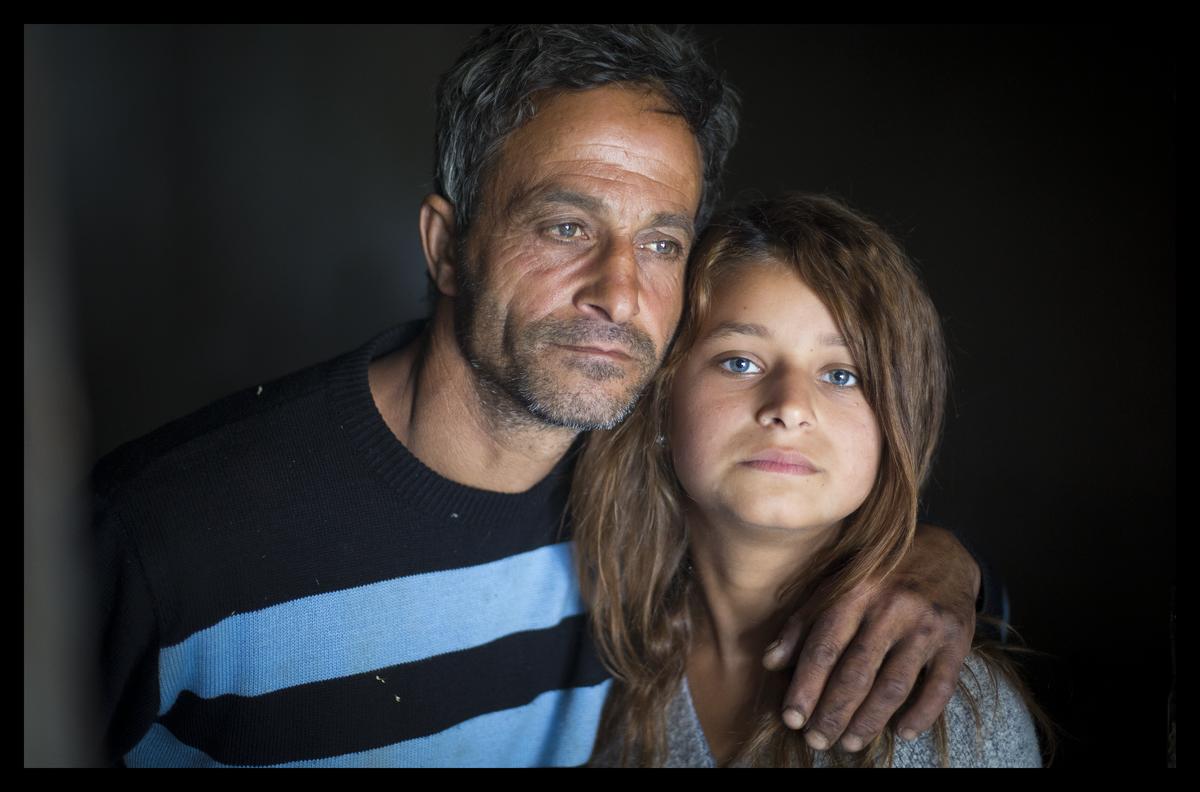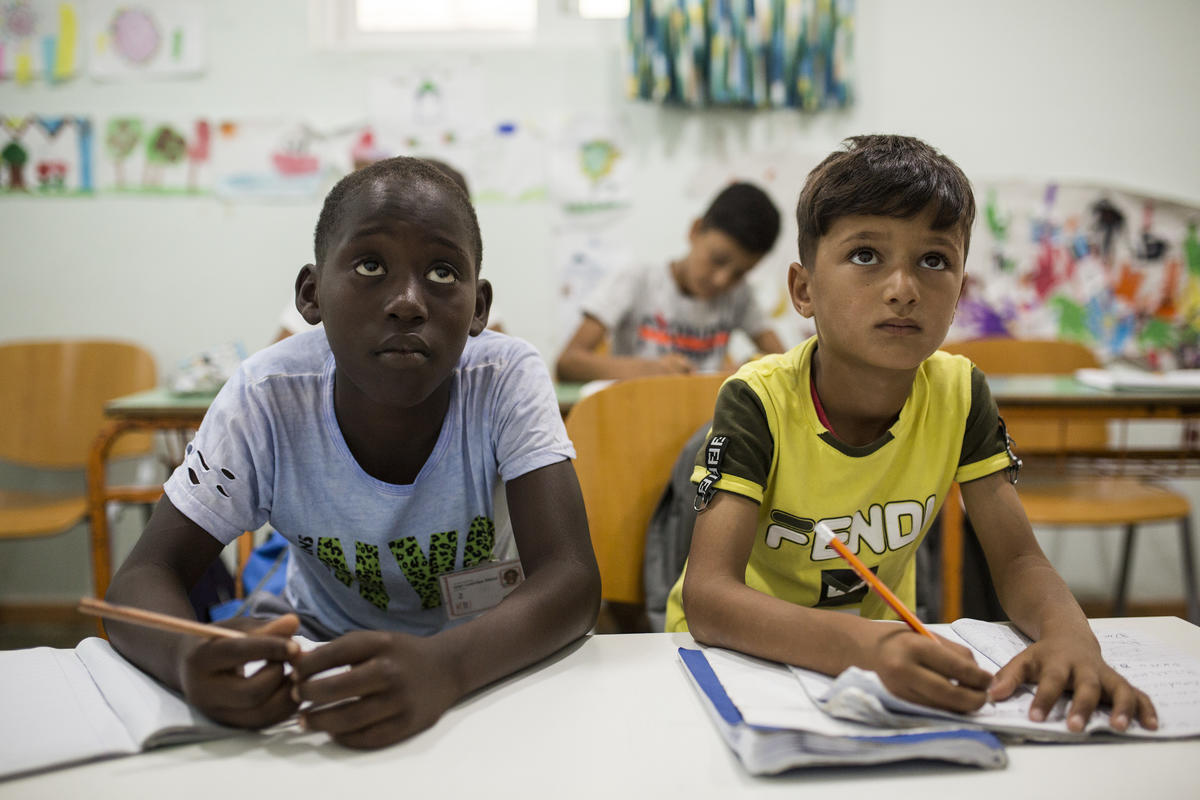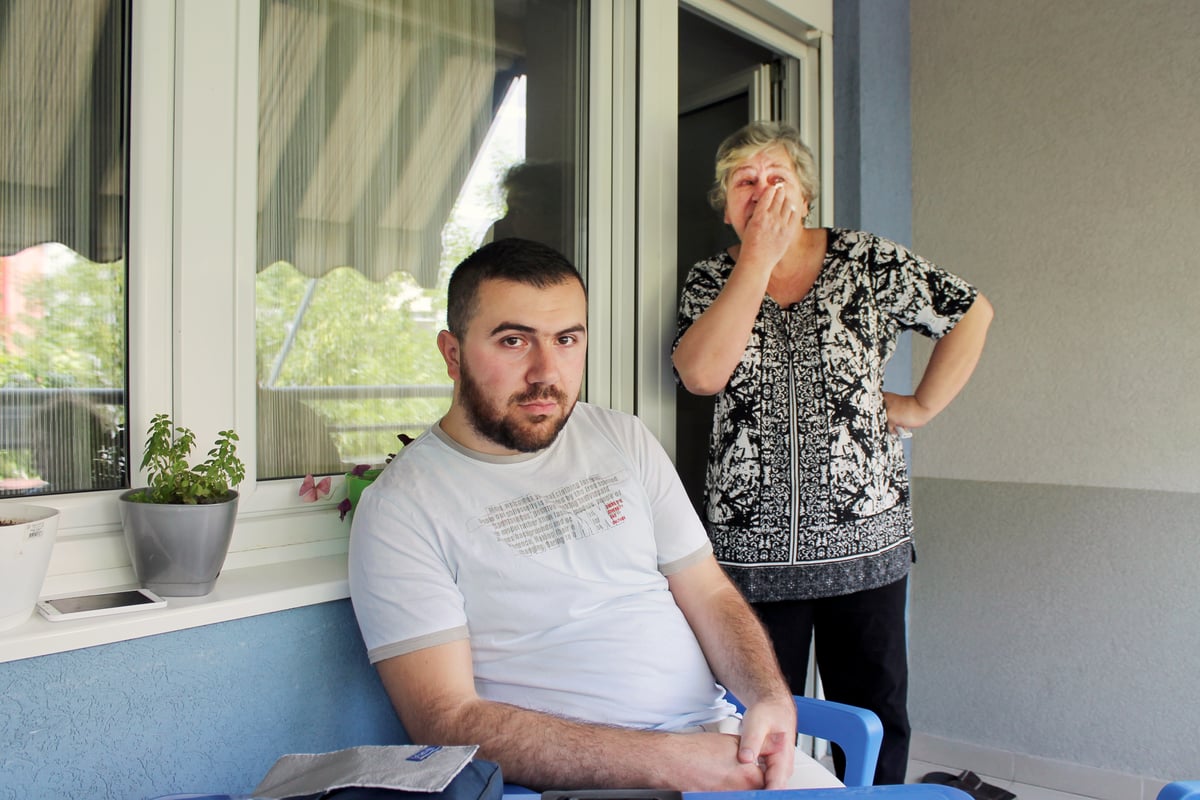FYR of Macedonia: NATO creating false sense of security?
FYR of Macedonia: NATO creating false sense of security?
More than 800 refugees have been returning daily to FYROM since Saturday, maintaining an increased rate of arrivals from Kosovo over the past week. Fuelling the upsurge in arrivals is the belief that NATO troops will offer protection, returnees and aid groups told UNHCR yesterday. But that is not really the case, as returnees to the Kumanovo region north-east of Skopje are discovering. They now realize that it is still unsafe to go back to some villages, and are staying with host families. UNHCR has already noted that the presence of NATO troops, who are in FYROM on a temporary mission to collect weapons under the 13 August peace agreement, is creating a false sense of security and prompting people to go back to areas which are still volatile.
More than 36,000 refugees have gone back over the past two months, and another 45,000 remain in Kosovo. The opening of the school year is also prompting refugee parents to return. They said that the school curriculum in Kosovo is different from that of FYROM.
Displaced people in the Kumanovo region on Monday expressed concern that they will be unable to cope in their temporary homes when winter comes. At a meeting with officials and relief agencies, representatives of ethnic Macedonian and Serb internally displaced people (IDPs) urged the government to quickly improve conditions in four collective centres and for host families in Kumanovo. The IDP representatives said dormitories require repairs and heating fuel. The IDPs need clothes and shoes, having left their villages in haste last May. Administrators of the collective centres want an increase in the daily expense cash given each IDP and the removal of a tax on it. They said that with the coming winter, life will become more difficult. The IDPs also said families hosting them deserve cash assistance. People in the neighbouring municipalities of Aracinovo and Lipkovo went to Kumanovo, 25 km east of Skopje, after fighting broke out in May and June. Most of the villages remain deserted.
A UNHCR team also met separately with a relief group working with ethnic Albanian IDPs and returnees from Kosovo. UNHCR was told that host families do not have the resources to help them, and that the only alternative is for security forces to allow them to return to their farms. People have become so desperate they plan to march to their villages if they cannot get help to return. They number around 10,000 in Kumanovo.









